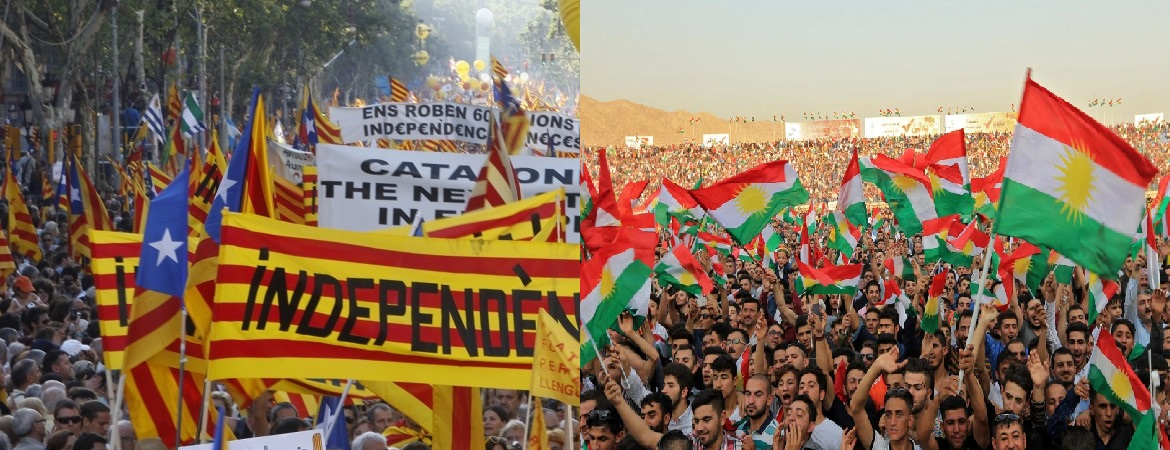
In countries where cultural and ethnic diversity is ubiquitous such as Iraq, Syria, Iran, Turkey, Cyprus, Spain and the United Kingdom, any political system aimed at homogenizing and assimilating ethnicities and beliefs will lead to systematic crises.
One of the possible solutions to the crises inherent to states integrating several nations, cultures and identities consist of the legitimate use of the right of self-determination of peoples as enshrined in the Charter of the United Nations.To hinder the use of this right by force and to declare the latter as illegitimate will only push back the process leading to a democratic and peaceful solution.
The use by the central states of their international diplomatic advantages as a means of lobbying against the various ethnicities that democratically demand their rights in their own countries results in a dissemination of the national crisis to an international level.
One of the examples of this crisis is currently being seen in Catalonia: The decision to hold a referendum adopted by the legitimate parliament of Catalonia, was not recognized by the Spanish central government. This provoked a social and political crisis with as a consequence the heavy intervention of the Spanish government forces, which could not prevent the referendum from being successful.
The European Union, for its part, has not spoken out yet, neglecting one of the principles of democracy, the right to vote and the right to identity. In the case of the referendum in Scotland on 18 September 2014, the intervention of the European Union had provoked questionable results. Despite the will of the Scottish people to remain within the borders of the Union, the referendum for the exit of the United Kingdom from the EU on 23 June 2016, which ended with a victory for the pro-brexit, has forced Scottish citizens to arise the new demands of the Scottish people for their real position in the context of these transformations.
Another example is the referendum recently organized in the Kurdish regional government (KRG), a referendum which, despite numerous threats from inside and outside, has resulted in a maximum participation rate and an overwhelming majority of votes in favor of independence. Only the central government of Iraq and all the surrounding countries with a Kurdish population attacked the right to self-determination of the Kurdish people, declaring this right illegitimate. Since then, isolation policies have been imposed by military threats, punishment of civilians and various embargoes.
The right of the people to recourse to referendums is a legitimate political right and must be kept separate from political and economic interests. In order to prevent political crises from deepening and to pave the way for fully democratic approaches, the EU and international institutions must defend the right to self-determination of peoples and the right to diversity of identities and cultures in the name of citizenship. To this end, international institutions must intervene without delay to avoid new crises and to help open the way for negotiations that would lead to democratic and peaceful solutions.
Hişyar Özsoy
Peoples’ Democratic Party
Vice Co-chair
3 October 2017
